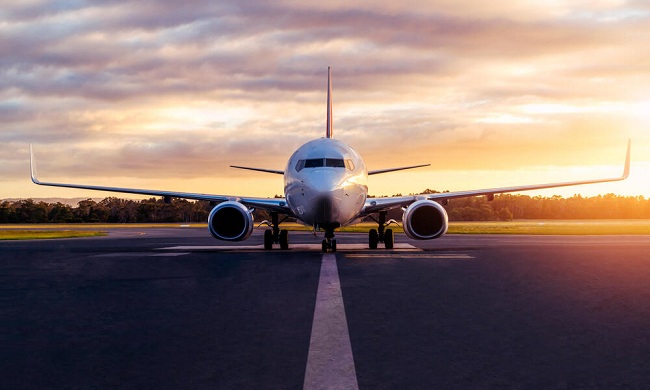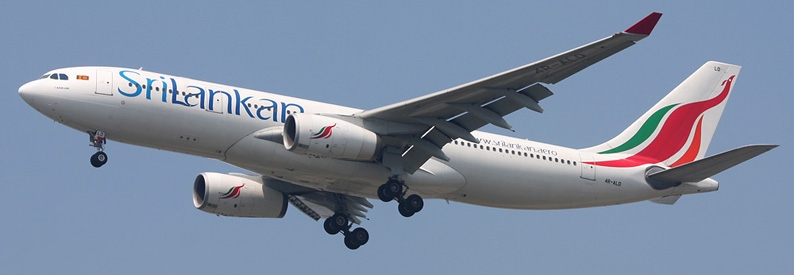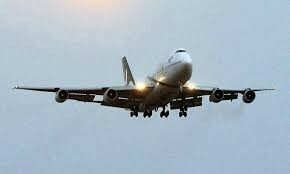THE recent spike in flight delays and cancellations on local routes by indigenous airlines has triggered the call on the Nigeria Civil Aviation Authority (NCAA) to reduce the operating routes for some of the domestic airlines.
Experts across the country’s aviation sector have suggested a reduction in the approval of the number of routes to be operated by the domestic carriers.
The call is coming out of the incessant flight cancellations and delays by the operators which had become a source of worries to both key players and the travelling public.
In view of the sharp rise in the incidents of flight delays and cancellations by the domestic operators with affected passengers being relayed at the airports for many hours without adequate compensations in line with the Nigerian Civil Aviation Regulations (NCARSs), a situation which has been majorly attributed to shortage of aircraft in the fleet of the operators, the stakeholders have argued that any airline with just two aircraft should be prevented from operating into more than four airports daily.
It has been revealed at the the different aviation fora that the fleet size of the domestic airlines have reduced to less than 50 percent due to many factors ranging from lack of access to forex, inability to fly out their aircraft for maintenance while the ones flown out cannot be brought back due to huge cost of maintenance done in foreign currencies, expensive aviation fuel, unfriendly business environment to the general economic situation amongst others.
In view of the development, many of the airline are struggling to remain in the business with its spiraling effect telling on their capacity.
According to information made available to Nigerian Tribune, in 2023 alone, the domestic airlines were said to have recorded 40,512 flight delays and over 400 flight cancellations.
The situation has become worsened presently with the fleet size of the local airlines dropping from 110 to 40, subsequently turning the airlines to either two or three airline operators except Air Peace, Ibom Air and Overland Airways that have enough capacity.
Key players react:
Speaking on the issue, the Director, Research, Zenith Travels, Mr. Olumide Ohunayo said that restraining airlines with reduced fleets to limited routes would improve the integrity of the aviation value chain in Nigeria – airlines, regulator (NCAA) and the passengers.
According to Ohunayo, the industry norm was for airlines with depleted fleets to suspend operations into some of their routes, pending the return of their airplanes, he however, decried that the reverse was the case with Nigerian airlines, which still wanted to keep their existing routes, irrespective of the unpleasant situation.
Ohunayo lamented how Nigerian airlines had failed to have proper commercial agreement like codeshare, interline and others with each other, recalling that Aviation Round Table (ART), industry pressure group, in one of is breakfast meetings, came up with resolutions on collaboration among the airlines, yet, they resisted it.
He cited how the lack of adequate equipment, infrastructure at the nation’s airports, presidential movement and poor service provisions by handling companies and others, contributed to flight delays and cancellations, which he said, were out of the control of the airlines and wanted the government to improve on the provision of facilities at the various airports to enhance schedule integrity for the operators.
According to Ohunayo: “However, you cannot force a commercial agreement on any airline; you can only encourage them. But, we have to bring some sanity into delays and cancellations.
“There are lots of other reasons for flight delays and cancellations. If you talk to the airlines, they will give you 16 to 17 reasons out of their control.
“However, with the new NCAA and the vigours that we have seen in consumer protection directorate and the assurances that there will now be discipline against any airline that delays or cancels flights, I think this will improve from what we have in the past and the integrity of the airlines is expected to soar higher”.
For the Chief Executive Officer (CEO) of Belujane Konzult, Mr Chris, operations of any airline with just about two aircraft should be limited to certain services.
According to Aligbe, while most Nigerian airlines had fallen below the industry’s required standard in schedule integrity, the reverse has been the case with Africa World Airlines (AWA) from Ghana, which its image had received a boost in recent years.
Aligbe therefore, urged the NCAA to give a template to the airlines, depending on their operating aircraft, stressing that with this, delays and cancellations would be minimised.
The Belujane Konsult CEO who wondered why the airlines had refused to collaborate or partner with each other despite the push for it when it is obvious that none of them could go it alone, declared: “There is no reason an airline with just two aircraft should not be told the number of routes it can fly by the NCAA. For instance, the NCAA can say that if you have two aircraft, you cannot do more than a maximum of five routes. We can upscale it that way; we do not need to go very far. Look at AWA for instance, the airline started how many years ago? It cut off all the West Coast flights and only flies in Nigeria and Ghana. In Nigeria, it flies into Lagos and Abuja multiple times.
“It doesn’t go to Sierra Leone, Côte d’Ivoire and Senegal, but it has a level of scheduled integrity at 92 per cent while here, we are at 62 per cent and even fall below our schedule reliability. AWA maximises the use of the aircraft it has. A year, it has about 2.5 million passengers and most of them are Nigerian passengers. AWA has 10 codeshare partners and all of them are the top big airlines; Emirates, Qatar Airways, British Airways, Air France and others.
“Like someone said, we can’t make it as a point-to-point carrier. The truth of the issue is that let us help the airlines since we have told the airlines over time to share among themselves their passengers if they can’ fly at a particular point in time, but they have refused over the years.
“May be the NCAA can give them a template; if you have four aircraft, there is the number of routes you can fly and don’t approve more than that. So, that way, if they want to operate reasonably and sensibly, passengers will not suffer as much as they are suffering.”
In the same vein, President of Aircraft Owners and Pilots Association of Nigeria (AOPAN), Dr Alex Nwuba threw its weight behind the call for limiting airlines with reduced fleets as a worthy call for the industry.
While attributing the reduction in fleet size, which resulted in flight delays and cancellations to the state of the economy, Nwuba decried that inflation had negatively impacted on fares, thereby leading to reduced demand, while high exchange rate combined with availability challenges had further affected demand and the ability of airlines to maintain their fleets.
“You can only imagine if the fleet size remained at its optimum while demand declined. So, the delays are not the direct attribute of fleet size, but airline efficiency”, Nwuba declared.
He equally called for a change of operational model from the airlines in order to remain in business.
At the South-West Regional Air Transportation Summit (SWRATS) 2024, hosted by the NCAA, recently, the Chairman, Senate Committee on Aviation, Senator Buhari Abdulfatai had canvassed for reduction of routes for some indigenous airlines by the apex regulatory body in order to ensure schedule integrity.
Abdulfatai had lamented that while other countries’ airlines took on-time departure seriously, the reverse was the case with the Nigerian carriers as they continually violated passengers’ rights without sanction from the NCAA.
The lawmaker proposed that any airline with just two aircraft in its fleet for instance, should be limited to a few airports and landings, maintaining that this would lead to massive reduction in flight delays and cancellations.
He also proposed a minimum of four aircraft for a startup carrier and charged the NCAA to stand up to its responsibilities of over-sighting the industry.
Read Also: Energy survey: 85.2% households use estimated billing — NBS



